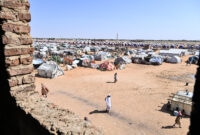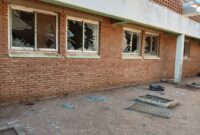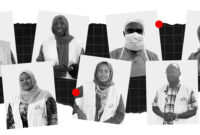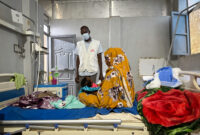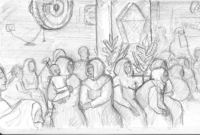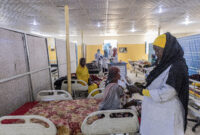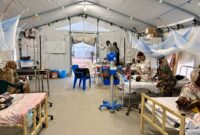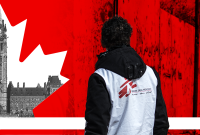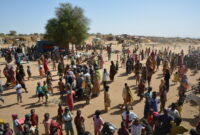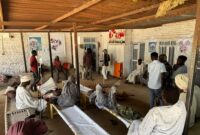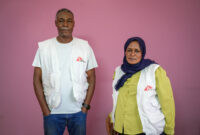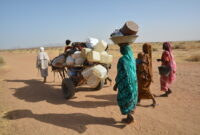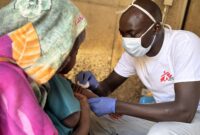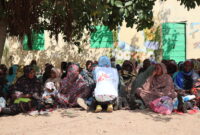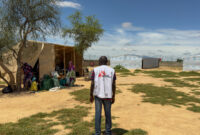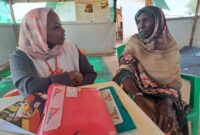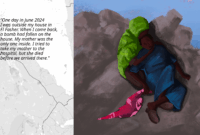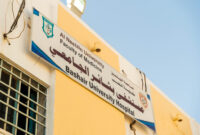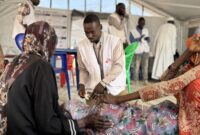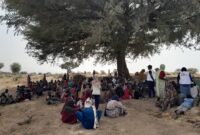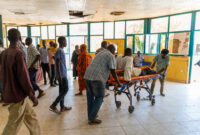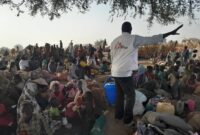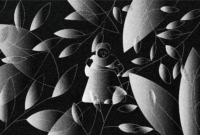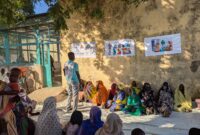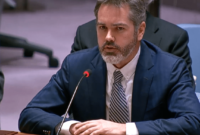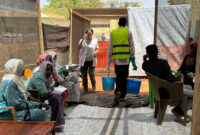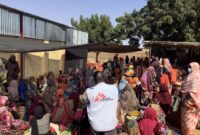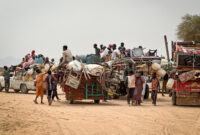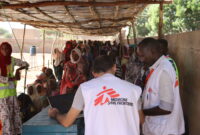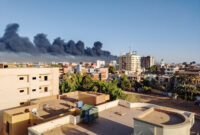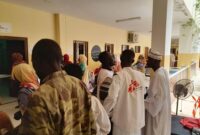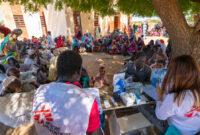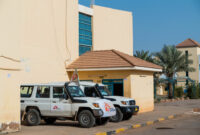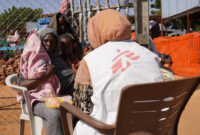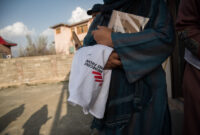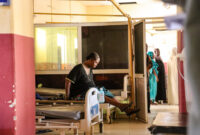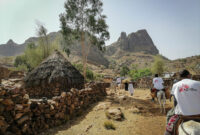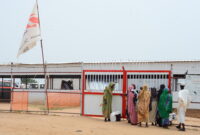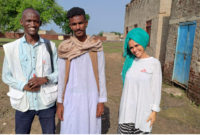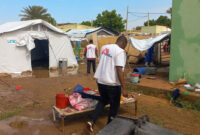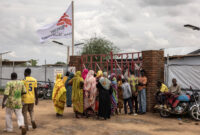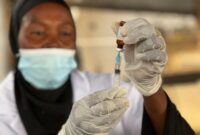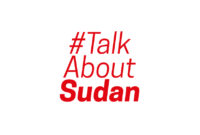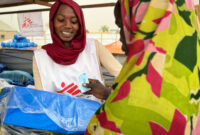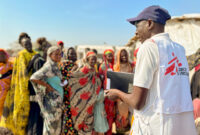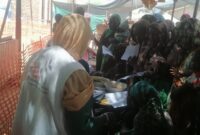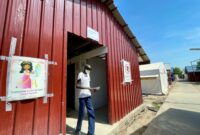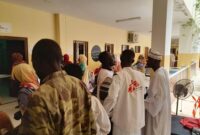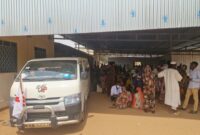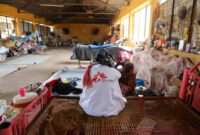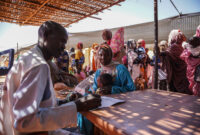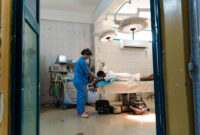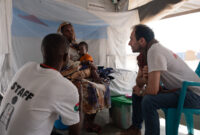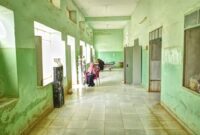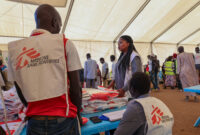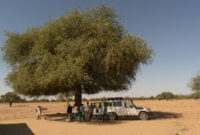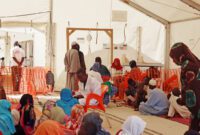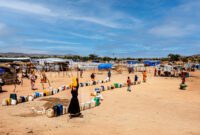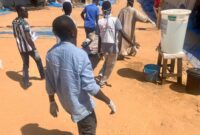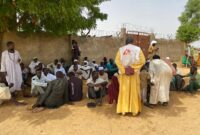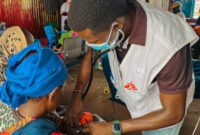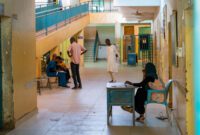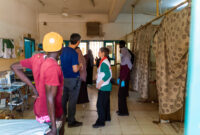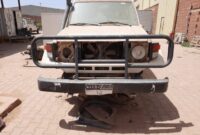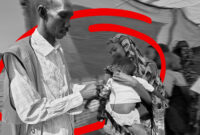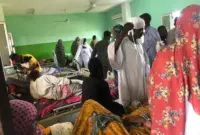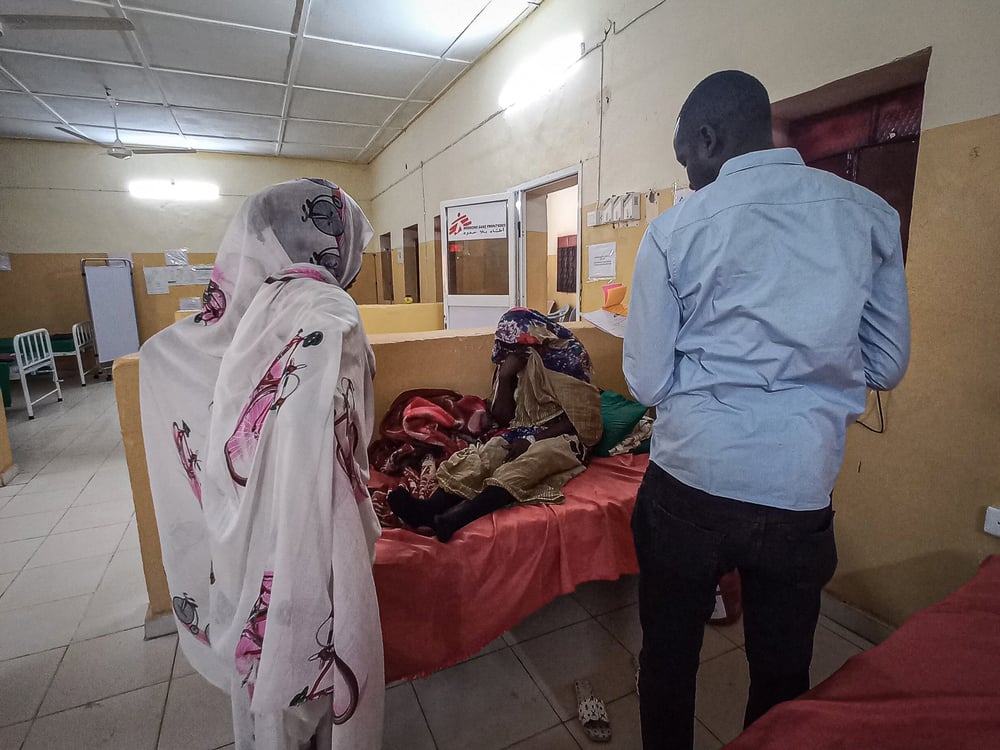Sudan: The war on people, the choice is ours
A reflection on Sudan’s war, resilience and the human cost of silence.
Mighty desert, mighty rivers,
The flow of life in the heat of passions
The depths of the message are hard to reach
Standing still in the action
The sands and the waters are speaking the same language
We are at the crossroad of space and time
The hardest is to face what is
The tears are from joy as well as sorrows
Both must vanish in the wind
We can choose to be a grain of sand in Merowe
Or a drop of water in the Nile
It will not change what is
We will remain observers
Of life unfolding its patterns
Violence and love are surplus of energy
The choice is ours
I wrote this poem in Port Sudan in June 2023, when I was inspired by the powerful beauty of Sudan that I fell in love with years ago, and deeply affected by violence spreading across the country since April 15. Since then, how many more atrocities people have had to live through in Khartoum, in Jazirah, in Sennar, in the Kordofans, in the Darfurs?
What struck me the most throughout the time I have spent on the Sudanese crisis is the scale of the ongoing disaster. I have not met one Sudanese person in or outside the country who is spared from the consequences of the conflict, directly or indirectly.
I remember people from Khartoum in an overcrowded student dormitory in Port Sudan in May 2023. The infrastructure was not adapted for dozens of families to be sheltered there, and they were telling us that they had nothing but the clothes on their back as they suddenly left the capital when the fighting erupted.
I remember the refugees who fled the mass killings of June and November 2023 in El Geneina, whom I met when the Rapid Support Forces (RSF) started the siege on El Fasher in May 2024. They recounted their own horrific stories of what they directly witnessed the previous year, when thousands of their community members were slaughtered. They were already fearing that the siege of El Fasher would spiral into similar exactions.
I remember the mothers in the neonatology ward of El Geneina teaching hospital, counting how many newborns died during the past week alone because of the immense gaps in the healthcare service delivery in West Darfur.
I remember the villagers who told us the violence they faced across Jazirah state, when their villages were brutally attacked by the RSF and they had to flee en masse at the end of October 2024. We responded for a second time in a few months to a massive wave of cholera as the consequences of overcrowded shelters lacking clean water and proper sanitation.
I remember the emergency room of Al Nao hospital in Omdurman on Feb. 1, 2025, when the RSF shelled a marketplace at peak hours, a few kilometres from the hospital. The emergency room was overwhelmed with patients alive and dead, and in the middle Ministry of Health staff were doing all they could to save lives and clean the blood from all over the floor.
I remember the shock and the sadness on the faces of the people returning to Khartoum after Ramadan. They were coming back to entire neighbourhoods completely destroyed after months of relentless street fighting and campaigns of indiscriminate heavy artillery shelling and airstrikes. The desolation was a stark indication of the armed factions aim to destroy the enemy and maintain their power over people without any regards for the preservation of human lives and dignity.
I remember the mothers in the neonatology ward of El Geneina teaching hospital, counting how many newborns died during the past week alone because of the immense gaps in the healthcare service delivery in West Darfur.
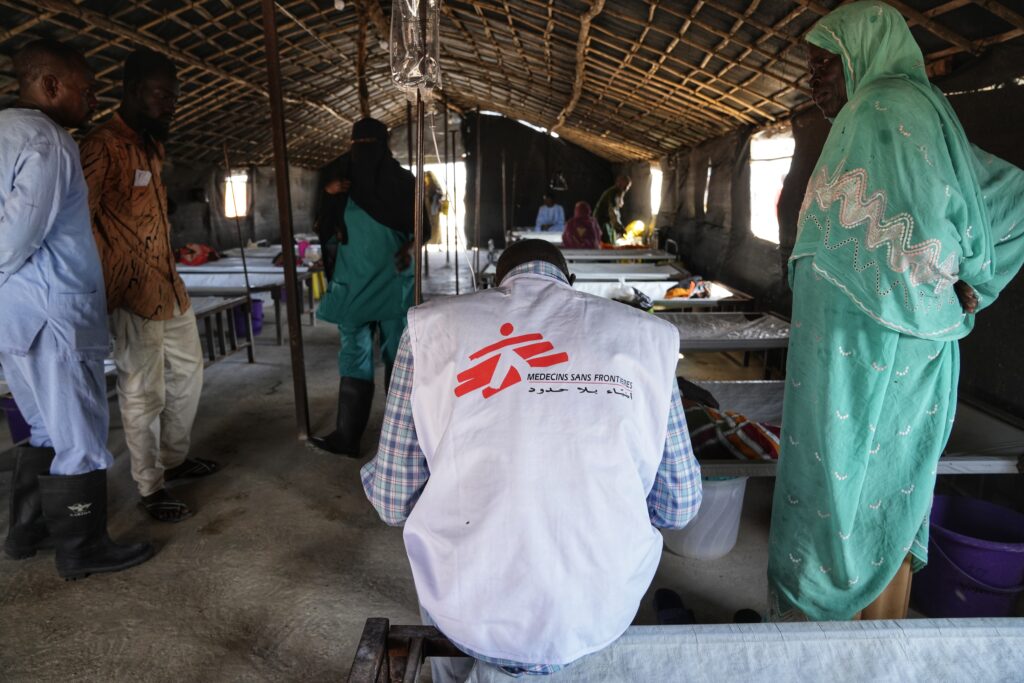
The scale of the devastation in Sudan is soul crushing.
Society’s entire fabric is being ripped to pieces and people are pushed to take sides by the force of the circumstances. The complexity of the dynamics is too long to explain in a few phrases. But the most important point to understand is how profound the wound of the Sudanese people is and how it continues to deepen at an alarming rate at the rhythm of daily horrific news. The forces at play are emerging from ethnic fault lines that the warring parties are exploiting for their gain, as colonial powers did before them. The causes of these societal fractures are deeply rooted in the past, and the reverberations of current events will be felt for generations into the future.
The generosity, courage and boldness of the Sudanese people are also extending old traditions of solidarity in various forms. The community kitchens fed millions of people for months if not years and continue to do so. The doctors’ networks and the emergency response rooms treat hundreds of thousands of patients and saved countless lives.
The darkest side of humanity in front of our eyes
I wouldn’t qualify what we are witnessing in Sudan as inhumane, because this is the first step of an othering process at the very root of the current situation. It is rather the darkest side of humanity that is exposed through the actions carried out against the civilian population in Sudan for the past 30 months.
It unfortunately reminds us all too well of the genocide of the early 2000s. The violence unleashed during that period involved the exact same actors at play today, even though many relations and alliances have shifted. For too long, and still at the time of writing, the armed actors in Sudan are erasing the humanity of entire communities in their words on paper and in their speeches to justify the physical and cultural extermination of the people.
However, violence and darkness are not the only factors echoing from the past in today’s situation. The generosity, courage and boldness of the Sudanese people are also extending old traditions of solidarity in various forms. The community kitchens fed millions of people for months if not years and continue to do so. The doctors’ networks and the emergency response rooms treat hundreds of thousands of patients and saved countless lives. And these are only a couple of examples of the mutual aid ecosystem that exists in Sudan. They are not only doing an incredible work, but they are also the bulk of the aid that the Sudanese people are receiving, particularly in areas that have been off-limits for international organizations and state institutions for months.
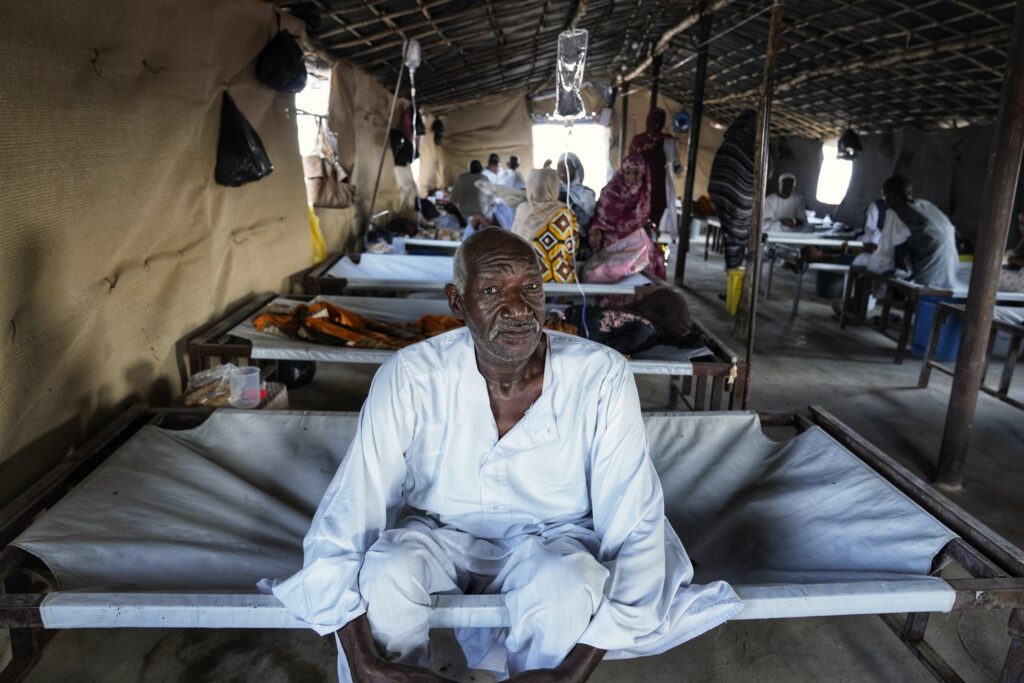
We all failed Sudan
I would like to pay a special tribute to all our Sudanese colleagues, whom I admire for their commitment, love and determination, who tirelessly continue to uphold the brightest of humanity despite fear, despair and devastation in the darkest times. I am proud and honoured to be working alongside them.
Mutual aid flourished from tradition and conviction, but also out of necessity. As the conflict drags on, the needs continue to grow in increasing parts of the country. Weapons continue to flow from foreign powers despite an embargo constantly violated that should have been expanded from Darfur to cover the whole country and international funding continues to decrease steadily.
Hollow declarations are empty gestures; the Sudanese people are still to see a true political will to materialize change in their lives.
The international humanitarian community failed the Sudanese people when the international staff from all institutions abandoned them at the beginning of the war. It also continued to fail to deliver aid where it was most needed and at scale because of lack of leadership and cohesiveness.
The international mechanisms such as the United Nations Security Council (UNSC), international organizations and the foreign powers involved directly or indirectly also failed the Sudanese people. Despite UNSC resolution 2736 demanding the RSF to end the siege of El Fasher, no concrete or meaningful actions were undertaken.
In the post-truth era in which we are living, every belligerent claims to be the defender of the people and uphold international humanitarian law, while decision-makers assert they have no leverage to influence the course of actions. Hollow declarations are empty gestures; the Sudanese people are still to see a true political will to materialize change in their lives.
Despite repeated warnings from history, from experts, from humanitarian workers, from Sudanese people, those with the power to act through the international systems in place, have failed to prevent hundreds of thousands of lives to be lost.
This war is not inadvertently forgotten but rather consciously ignored. The events unfolding right now were predictable but not unavoidable.
The choice is ours.



